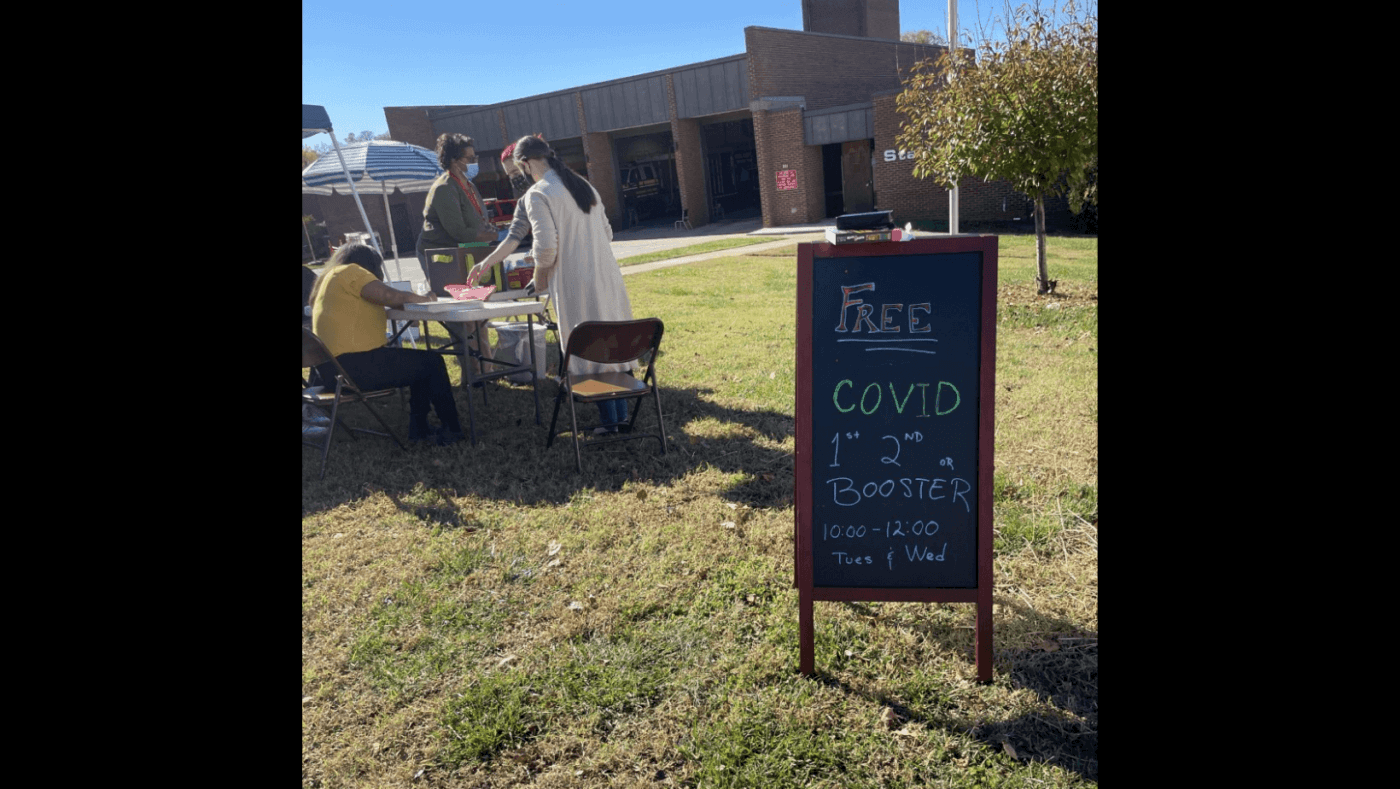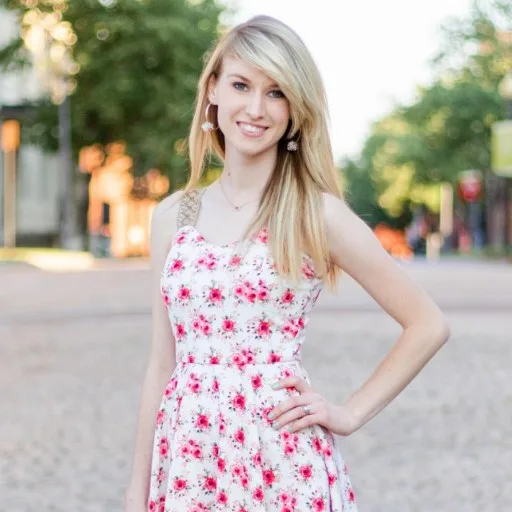
Image via Free Clinic of Central Virginia
A recent survey found 76% of Virginia free and charitable clinics saw an increase in patients, while 40% experienced a decrease in staff and volunteers.
WINCHESTER—It was a regular day at Sinclair Health Clinic in Winchester, where Katrina McClure serves as the executive director. A woman was in for a routine medical exam, when one of the healthcare providers discovered abnormal cells.
It later turned out to be cancer. Because the medical team at Sinclair had discovered the it early, there was no need for radiation or chemotherapy.
“And you think about that, like, [what] if we caught it two years later or something, or five, 10 years later? If she was medically neglected or she didn’t have access to the care we provided, what would’ve that done to her family, like, her young kids? What would that have done? She wouldn’t have been able to work. What would that have done to their financial, like, stability, their household stability?” McClure said. “We were able to change this person’s life in the most beautiful way.”
That’s the power of free and charitable clinics in Virginia. However, like many healthcare providers across the country, the free clinics are not immune to some of the challenges the current health crisis brings.
Facing Challenges
At a free or charitable clinic, patients receive medical care regardless of their ability to pay. In Virginia alone, the clinics served approximately 74,000 vulnerable people in 2020, compared to more than 67,000 people in 2017.
“Free clinics have always served as a trusted source of vital information—public health information—for key communities—vulnerable communities—across the state,” said Rebecca Butler, vice president of marketing, communications, and development at the Virginia Association of Free and Charitable Clinics (VAFCC). “The state certainly has leaned on free clinics to help reach those hardest-to-reach communities, both with the education they need to save their lives, but also services for testing and vaccination.”
In November, the VAFCC conducted a survey on clinic operations, which included responses from 50 of the 60 member clinics.
Here’s what the survey found:
- 76% of free clinics throughout Virginia reported an increase in year-over patient demand.
- 40% of free clinics reported paid staffing shortages and a lack of volunteers.
“Free clinics are not immune to the staffing shortages that are being experienced across all industries and especially in health care as a result of the ongoing pandemic,” Butler said.
Coupled with the staffing shortage, the uptick in patients needing care created what Butler called “a perfect storm.” However, it’s one that the VAFCC plans to weather. Butler noted ways its doing just that, including offering Telehealth services and providing preventive health offerings like routine vaccination services.
“During these challenging times when the need for accessible health care has never been more apparent, free and charitable clinics are caring for vulnerable Virginians,” said Rufus Phillips, VAFCC CEO. “Clinics have never slowed down since the start of the pandemic and they remain committed to providing quality and innovative care, regardless of a person’s ability to pay. We expect the demand for care at clinics to only increase in the coming months. The additional burdens are straining the limited resources of clinics.”
The VAFCC reported rising needs in all service lines including dental, medical, behavioral health, and pharmaceutical. COVID-19 related testing and vaccinations were also highly requested services.
Rising to the Occasion
“Overwhelmed.” It’s a word often encountered on social media in an effort to describe what healthcare workers have experienced since COVID-19 struck Virginia in March 2020.
Naturally, we asked McClure if “overwhelmed” was the right word, considering the overall uptick in patients. It wasn’t, she said. Rather, she viewed the metric as an opportunity to help more people with the resources available. At Sinclair Health Clinic alone, the number of patients increased from 1,276 in 2019 to 1,790 in 2020.
“It’s like the challenge of how to meet more needs. We’ve leveled up so many times and we’re now looking at more ways to level up. It’s a privilege to be able to help more people,” McClure said. “I mean, each person matters. So if we could help more people, we are doing better at meeting our mission, and there’s something wonderful about that.”
Jen Webb, interim CEO at the Free Clinic of Central Virginia in Lynchburg, also saw the rise of people seeking care at free clinics as an opportunity to help.
“We want to make sure that no matter what, at the end of the day, that not only are we providing [patients] with care that you or I could get at our doctor’s office, but it’s quality care that will help them,” Webb said.
For workers at free or charitable clinics, it’s not quite like what a viewer might see on a popular television show featuring doctors and nurses. But it’s worth it.
“It’s not glamorous. We’re not saving people from, like, [a] burning building,” McClure said. “We’re preventing things, which is a little harder to see, but it makes such a huge difference in people’s lives.”
Being Part of the Solution
The VAFCC noted that free and charitable clinics need a mix of volunteer provider positions including nurse practitioners, physicians, nurses, dentists and dental hygienists. However, there’s also a need for non-medical volunteers at many commonwealth clinics.
“We need volunteers of all types. We have clerical volunteers who come in and help us answer phones because a lot of times, even our medical folks need a break from answering a phone, so people can answer phones. People can do data entry. They can help do medical charting and data entry,” Webb said. “People can also volunteer to go out in the community and help promote and educate [about] vaccine clinics and things like that. So you don’t have to be medical to volunteer time with us. Anybody that shows up can help.”
There are a multitude of opportunities, both for individuals with experience and those who simply want to offer a helping hand.
“I think a lot of people are nervous to offer to volunteer because they think that they don’t have any skills that could help,” Webb said. “Sometimes just having somebody there with you when things are busy or chaotic to just help is priceless.”
Interested providers may visit VAFCC’s Volunteer Opportunity Board & Directory to learn more about staffing and volunteer needs.
Amie Knowles reports for The Dogwood. You can reach her at [email protected]
Support Our Cause
Thank you for taking the time to read our work. Before you go, we hope you'll consider supporting our values-driven journalism, which has always strived to make clear what's really at stake for Virginians and our future.
Since day one, our goal here at Dogwood has always been to empower people across the commonwealth with fact-based news and information. We believe that when people are armed with knowledge about what's happening in their local, state, and federal governments—including who is working on their behalf and who is actively trying to block efforts aimed at improving the daily lives of Virginia families—they will be inspired to become civically engaged.


VIDEO: Your support matters!
Your support matters! Donate today. @vadogwoodnews Your support matters! Visit our link in bio to donate today. #virginianews #virginia #community...

Op-Ed: Virginia’s new Democratic majorities pass key bills to improve your lives, but will Youngkin sign them?
The 2024 Virginia General Assembly regular session has wrapped up. It was a peculiar session from the outset, with Democratic majorities in the...

Op-Ed: Why Virginia Needs A Constitutional Amendment Protecting Reproductive Freedom
Virginia’s recent election season in 2023 drew in eyes from all over the country. Reproductive freedom was on the line and Virginia remained the...

From the state rock to the state flower, here’s how Virginia got its symbols
Have you ever wondered why the Dogwood is the state flower? Or how the cardinal became the state bird? We’re here to answer those questions and more...

VIDEO: Second-gentleman Douglas Emhoff gives speech on reproductive freedom
Second gentleman, Douglas Emhoff touched on reproductive freedom not only being a woman's issue but "an everyone's issue" during the Biden-Harris...

Glenn Youngkin and the terrible, horrible, no good, very bad night
Election Day 2023 has come and gone, and while there are votes to be counted, one thing is perfectly clear: Virginians unequivocally rejected Gov....





